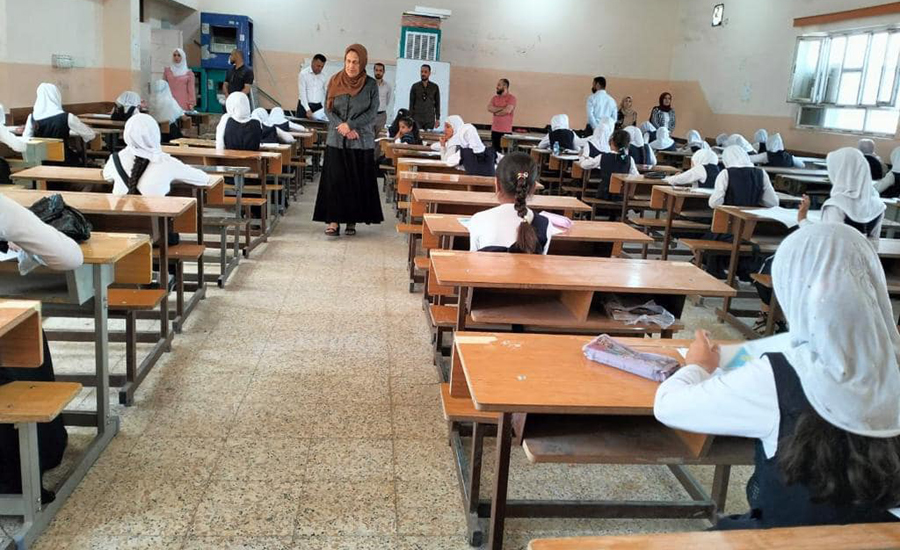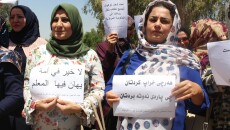The General Directorate of Education of Kirkuk decided to transfer male teachers from girls' preparatory, intermediate and secondary schools due to complaints and "problems" in these schools.
The letter, which was issued by the directorate on August 9, 2023, and a copy of which was obtained by KirkukNow, states: “In the public interest, it was decided to withdraw all teaching staff of the (male) sex in preparatory, intermediate and secondary schools for girls.”
The book also stated, "Otherwise, you bear all the legal and administrative responsibilities."
The book bears the signatures of both Raad Abdullah, Acting Director General of Education in Kirkuk, and Saman Majeed, Assistant Director General of Education.
Saman Majeed, assistant general director of education in Kirkuk, told KirkukNow, “This is not new in the curriculum and program of the Iraqi Ministry of Education but in the past and due to lack of sufficient staff it has not been executed, not it is valid and should be followed.”
This is not new in the curriculum and program of the Iraqi Ministry of Education
He explained that the decision came after receiving many complaints from girls' schools about the existence of problems in girls' schools that include male teachers, "so we issued the decision based on the instructions of the ministry."
"We will start from the schools in which problems occurred... It is possible that the same decision will be applied to boys' schools which have female staff, but it must be taken into account that there are no vacancies in the teaching staff."
The decision comes during the summer break, less than two months before the start of the new academic year.
The oil rich city of Kirkuk, Iraq's second largest oil reserves, is ethnically a mixed province for 1.7 million Kurds, Sunni and Shiite Arabs, and Turkmens. It has long been at the center of disputes between Baghdad and the autonomous Kurdistan Regional Government KRG.
Last May, the Directorate General for Education in Kirkuk said it is preparing to complete the procedures for permanent employment of over 17,000 lecturers hired per temporary contracts, but the Kurds and Turkmens complain arguing they make only 6,000.
These efforts by Kirkuk Education come after a decision by the Iraqi Ministry of Education, which is being implemented in all governorates, and stipulates the transfer of all lecturers from contracts to permanent staff. The decision includes 17,267 lecturers in Kirkuk, according to the provincial education officials.
The process includes contractors covered by Iraqi government decisions (130 and 315) in the departments of Arabic, Kurdish, Turkmen, literacy and vocational studies.
In educational institutions in Kirkuk, there are three types of teachers, permanent staff, contract and volunteer lecturers, and at present the decision includes contractors only.
Iraq’s education infrastructure is in ruins in many parts of the country; one in every two schools is damaged and needs rehabilitation, says a report by UNICEF about education in Iraq.
Due to lack of sufficinet school buildings and educational staff, a number of schools operate in multiple shifts in an attempt to accommodate as many students as possible, squeezing the little learning time that children have.






